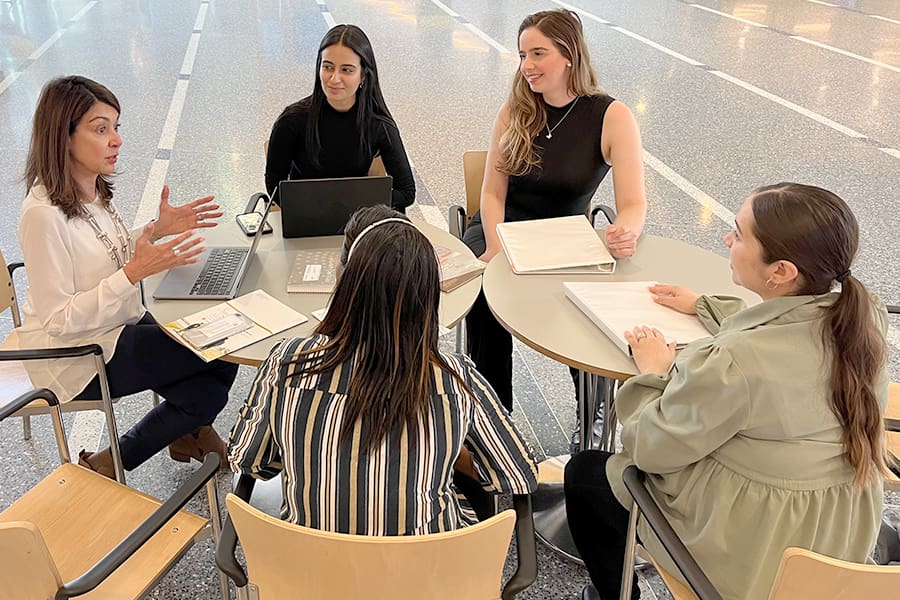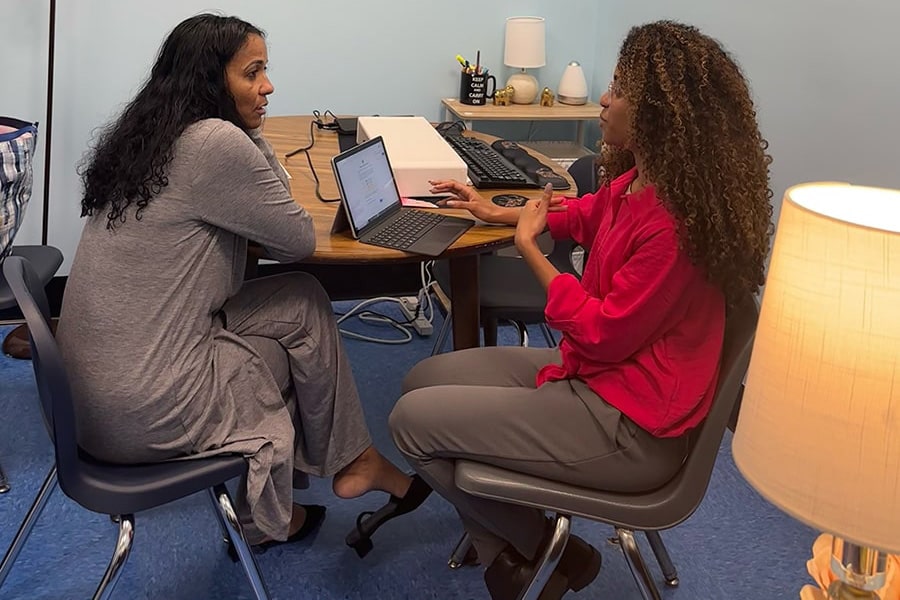- Home
- News
- Recent News
- Building Health Equity: The Power of Community
Building Health Equity: The Power of Community-Engaged Research
Community-engaged research is a powerful approach that actively involves community members in the research process, ensuring that the findings directly benefit their own communities.

This method is crucial for advancing health equity and lies at the core of several innovative projects currently underway in the Department of Urban Public Health at the Donna M. and Robert J. Manning College of Nursing and Health Sciences.
As a community-based public health researcher, my work focuses on addressing health disparities, particularly among minority and multiethnic Latinx populations in the United States and Latin America. Though I left Latin America 30 years ago, it has never left me—it remains at the core of everything we do. Through community-engaged approaches, we identify barriers to optimum health and develop effective interventions to improve health outcomes and promote equity among Latin American populations.
Throughout my years of research, I have reaffirmed that meaningful community engagement is essential for achieving lasting impacts on both individual and collective health. Communities themselves hold the best roadmap for addressing their health needs in ways that are culturally sensitive, sustainable, and effective. While this article focuses on our program’s work with the human papillomavirus (HPV) vaccine, the scope of our research has extended to addressing other significant public health issues, with special focus on maternal and child health.
Raising Awareness and Equity in Access to Health Information
Community-engaged research often serves as a vital vehicle for raising awareness about important health issues, particularly in communities where access to evidence-based information is limited. We believe that there cannot be equity in health without equity in access to accurate, evidence-based information—information that is culturally sensitive and meets the needs of diverse ethnic populations. Our research efforts aim to bridge the gap in knowledge and empower communities to make informed decisions that directly impact their health and well-being.
Currently, we are conducting three key studies to explore how to increase HPV vaccination uptake in minoritized, immigrant populations, specifically focusing on Central American, Brazilian, and Cabo Verdean communities. According to The Centers for Disease Control and Prevention estimates, HPV vaccination can prevent over 90% of cancers caused by HPV infections. Our research is designed to identify factors that promote vaccination and ultimately reduce preventable HPV-related cancers.
For instance, in one of our projects, PREV-VPH, focused on Central American immigrant communities from El Salvador, Guatemala, and Honduras, also known as the northern triangle countries, we involved UMass Boston students and community partners from these communities to conduct community outreach, recruit participants, and interview parents of pre-adolescent and adolescent children. These interviews aim to understand parents’ awareness and knowledge of the HPV vaccine the reasons behind parents' hesitancy to vaccinate their children against HPV. Parents have shared valuable insights, offering recommendations for culturally tailored interventions. These include enhancing community-wide dissemination of information about the risks of HPV and the benefits of vaccination, ensuring that the message is linguistically and culturally relevant. Furthermore, parents have expressed a need for educational campaigns to be delivered through social media and schools, reaching not just parents of age-eligible children but the broader community as well. Many parents had not heard of the HPV vaccine and heard it for the first time through our research.
By developing and implementing interventions that meet the specific needs of immigrant populations, we increase the likelihood that children in these communities will receive the HPV vaccine, thereby reducing HPV-related infections and cancers.
Empowering Communities and Building the Next Generation of Leaders
Community-engaged research also provides essential training and experiential opportunities that empower community members to address future health challenges. For instance, we created a program called "Avancemos!: Advancing Research Skills and Professional Career Opportunities in Health Sciences for Latinx Undergraduate Students" to cultivate students' interest in academia and research within their own communities. We believe it is essential that our research team reflects the diverse communities we serve. By leveraging the ethnic, linguistic, and cultural diversity of our student population at UMass Boston, we create opportunities for students to advance professionally while serving as role models and leaders within their communities, inspiring others to follow suit.
We have seen remarkable outcomes from this program. Many of our students, motivated by their involvement in community-based research, have gone on to complete their degree programs, pursue careers in STEM fields, and secure jobs that enhance their economic mobility and security. On a broader systemic level, this helps to diversify the workforce, an essential step in building health systems that are truly equitable and capable of improving health outcomes for diverse communities.

A research assistant meeting with a mother as part of a two-year HPV research called “Toward Racial Equity and Justice in Human Papillomavirus (HPV) Vaccination: An Exploratory Study with Cabo Verdean Parents” funded by the National Institute on Minority Health and Health Disparities (NIMHD). Image By: Ariane DePina

Professor, Department of Urban Public Health, MCNHS